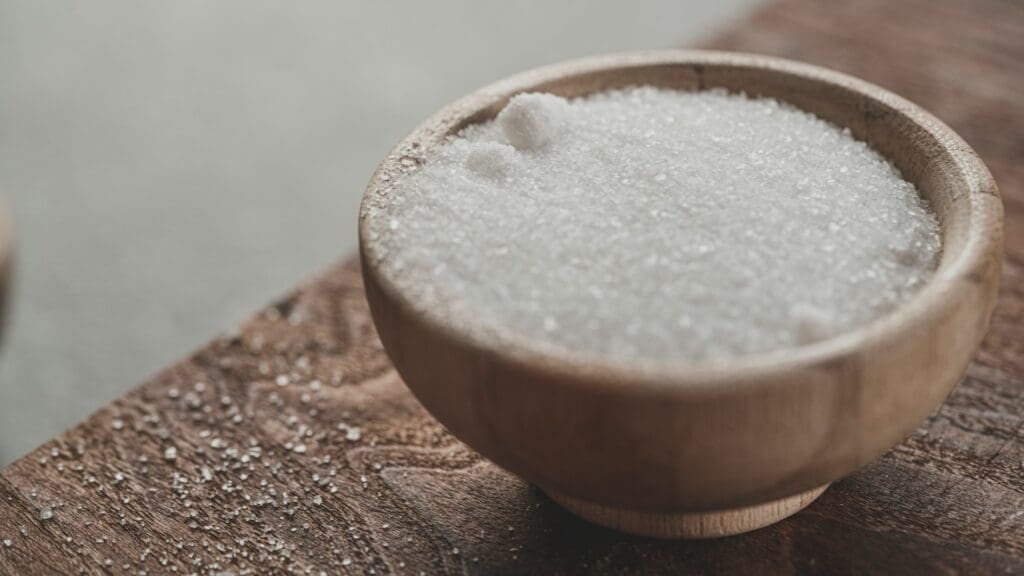
Natrium muriaticum
Latin name: Natrium muriaticum
Short name: Nat-m.
Common name: Sodium chloride | Table salt | Sea salt | Rock salt | Halite
Primary miasm: Psoric Secondary miasm(s): Sycotic
Kingdom: Minerals
Family: Halide
- Symptomatology
- Remedy Information
- Differentiation & Application
Sodium chloride (NaCl) is a naturally occurring mineral compound composed of sodium and chlorine ions. Found abundantly in sea water and salt deposits, it is essential to human physiology, regulating fluid balance, nerve conduction, and muscle contraction. When potentized, this ubiquitous substance becomes one of the most profound constitutional remedies in homeopathy.
Primarily used as table salt for flavouring and preserving food. It’s also a medical staple in intravenous fluids and electrolyte replacement. In industry, it is used in chemical production, de-icing roads, and water softening.
First proved by Samuel Hahnemann in the early 1800s and published in Chronic Diseases. The proving was conducted according to classical Hahnemannian protocol with potentized doses administered to healthy provers.
Acts strongly on the nervous system, mind and emotions, mucous membranes, blood, skin, and female reproductive system. Right-sided symptoms are common.
Solitude; lying in the dark; open air (but not cold wind); pressure; cold bathing; rest; fasting.
Sun exposure; heat; talking; mental exertion; sea air; sympathy or consolation; music; morning (especially 10–11 AM); menstruation.
- Ignatia: grief and disappointment, but more hysterical and changeable.
- Sepia: hormonal issues and sadness, but with more irritability and indifference.
- Phosphoric acid: silent grief with apathy rather than sadness.
- Silicea: introverted, chilly, but lacks the salt craving and grief pattern.
- Complementary: Ignatia, Apis, Sepia
- Antidotes: Pulsatilla, Camphor
- Inimical: Lachesis
- Follows well: Ignatia, Aurum
- Precedes well: Sulphur, Calcarea carb.
A person with deeply buried sorrow, who strives to maintain dignity despite a heart still bleeding. Natrum muriaticum is the remedy of emotional control and crystalline sensitivity—a soul that hides its tears and mistrusts consolation.
Indicated for conditions arising after grief, such as chronic headaches, eczema, amenorrhea, asthma, or anemia. Chronic use often benefits from 30C to 1M, repeated cautiously. For hypersensitive constitutions, LM potencies are preferred.
Mind
- MIND – Ailments from grief
- MIND – Consolation aggravates
- MIND – Dwells on past disagreeable occurrences
- MIND – Reserved, taciturn
Head
- HEAD – Pain, as from a thousand little hammers
- HEAD – Sun, from exposure to
Female
- FEMALE GENITALIA/SEX – Menses, suppressed from grief
- FEMALE GENITALIA/SEX – Leucorrhoea, transparent
Skin
- SKIN – Herpes, lips, after sun exposure
- SKIN – Greasy, oily face
Generalities
- GENERALITIES – Emaciation
- GENERALITIES – Salt, desire for
Samuel Hahnemann, Chronic Diseases
James Tyler Kent, Lectures on Homoeopathic Materia Medica
William Boericke, Materia Medica
Herbert Roberts, The Principles and Art of Cure
Henry C. Allen, Encyclopedia of Pure Materia Medica
John Henry Clarke, A Dictionary of Practical Materia Medica
Constantine Hering, Guiding Symptoms of Our Materia Medica
